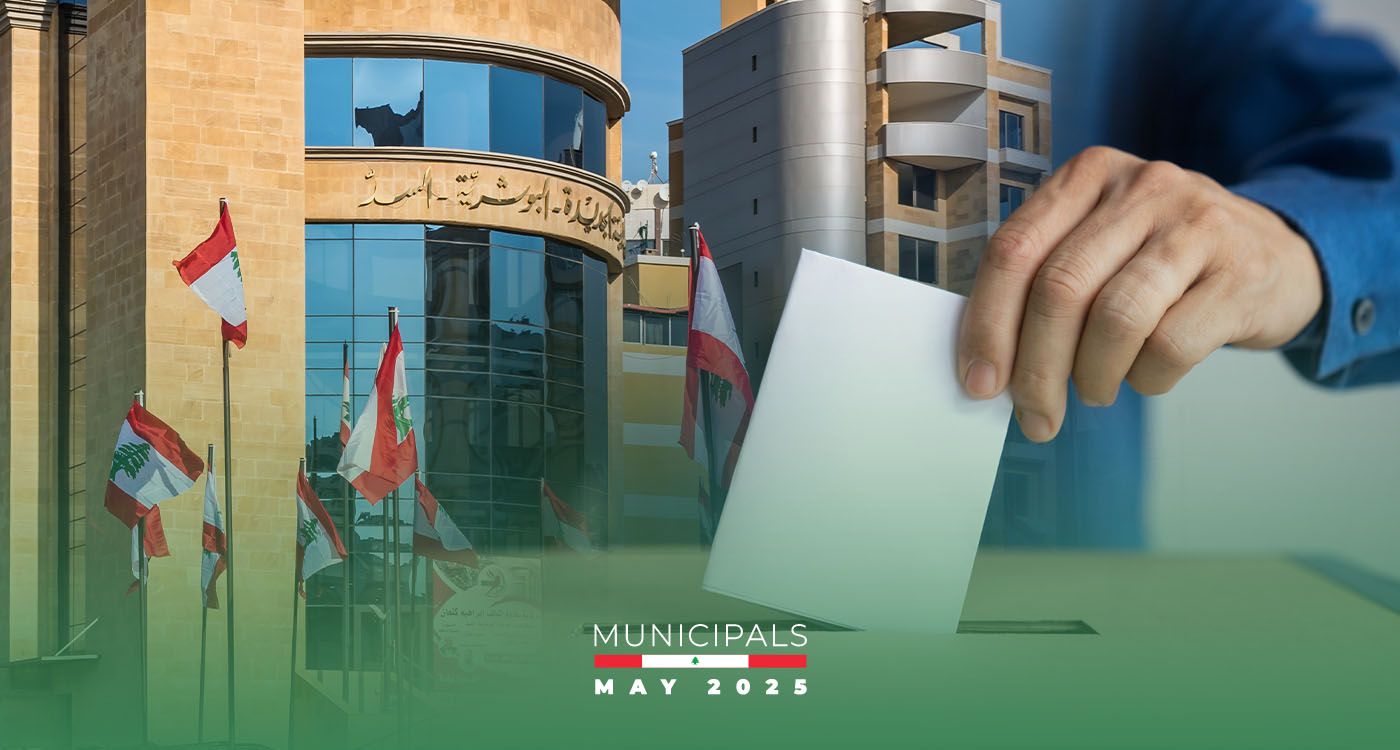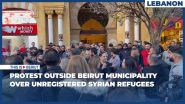
As the May 4th municipal elections in Mount Lebanon approach, the race in the Jdeideh–Bauchrieh–Sed Bauchrieh municipality is heating up.
This municipality, the largest in Northern Metn, represents a key battleground in the upcoming elections.
The municipal council, which plays a crucial role in local governance, consists of 21 members: five from Jdeideh, nine from Bauchrieh, and seven from Sed Bauchrieh.
A Long-Awaited Election
The last municipal election in the area was in 2010. In 2016, the council was formed uncontested, but internal divisions and resignations ultimately led to its collapse. Since then, Jdeideh has suffered from neglect, political bickering and administrative stagnation, while residents have continued to pay municipal taxes, fueling a growing sense of frustration. Now, with the May elections on the horizon, there is a palpable desire for change and new leadership.
Political Alliances and Shifting Candidacies
The political scene is now defined by two main coalitions, alongside a handful of independent candidates. The Free Patriotic Movement (FPM) has allied with MP Michel Murr, backing Jean Abi Jaoudeh as their candidate for the presidency of the municipal council.
Abi Jaoudeh’s list, titled “With transparency, we build the future,” was officially launched in Jdeideh–Bauchrieh–Sed. Abi Jaoudeh emphasized a developmental approach above political disputes. He denied any coordination with former municipal council president Antoine Jbara, confirming the list’s independence and focus on serving the community through a united, capable team.
Former president Antoine Jbara has officially submitted his candidacy. Sources reveal that Jbara’s move is strategic: he does not intend to see the race through to the end but aims to shake up the scene before eventually withdrawing. His withdrawal would pave the way for candidates loyal to him and, according to some sources, the Murr family to be integrated into Abi Jaoudeh’s list.
Notably, Jbara has intentionally removed his son, lawyer Cesar Jbara, from the political equation to protect his image, while re-entering the political scene himself to influence alliances and outcomes.
On the opposing side, the Kataeb Party and the Lebanese Forces (LF) have joined forces under a unified list titled “Sar Wa'ta” (It’s About Time), led by Auguste Caesar Bakhos. His running mate for vice president is Ghassan Yazbek.
The coalition launched its campaign during a public gathering, where Bakhos laid out a detailed strategic plan to revive the municipality, focused on digitization, security, economic revitalization, energy innovation and environmental projects.
Despite forming a complete 21-member list, observers suggest the coalition remains relatively weak locally, with candidates assembled more to fill spots than through a coherent strategy.
Internal conflicts between the Kataeb and Lebanese Forces have intensified. The Kataeb assert they handpicked Bakhos and shaped the list, portraying themselves as the primary leaders of the coalition, with LF in a supporting role. Meanwhile, the Lebanese Forces insist that the list was their initiative and that Bakhos is acting under their guidance.
In a public show of support, MP Ibrahim Kanaan, head of the Parliamentary Finance Committee and former prominent FPM personality who quit the party after clashing with Gebran Bassil, welcomed the “Sar Wa’ta” list, praising its members’ willingness to take responsibility for the area and act beyond political or personal grudges. He emphasized the need for ethical conduct, unity and immediate post-election action, commending Bakhos as someone who combines experience, education and local commitment.
In response, Auguste Bakhos affirmed the unity and dedication of his list, warning against his opponents’ alliance, which he described as “incomplete” and reliant on familiar names with failed records and manipulative reputations. He criticized the “With transparency, we build the future” slogan, stating, “Those who have never been transparent in life won’t suddenly become so now.”
Meanwhile, an independent candidate, Jean Bakhos (no relation to Auguste), is running solo and is expected to make a strong impact as a "lone wolf" challenger.
A City at a Crossroads
The entry of Antoine Jbara into the race—followed by his expected withdrawal and alliance-building—has reshaped the political landscape in Jdeideh–Bauchrieh–Sed.
What was once shaping up as a traditional two-way contest has evolved into a much more complex and unpredictable battle.
Residents of the area, disillusioned by years of neglect and dysfunction, are demanding real reform. They seek leadership that can overcome political rivalries, restore municipal services and rebuild public trust.
Jdeideh’s political dynamics are deeply complicated by sectarian, familial and party divides.
In addition to its political weight, the municipality’s economic and strategic importance—housing industrial zones, commercial centers and the Burj Hammoud-Jdeideh landfill—makes the outcome of these elections critical especially for Metn.
The stakes are high. May 4th will not simply decide a president—it will define the direction of Jdeideh–Bauchrieh–Sed for years to come.
Whether the outcome will usher in genuine reform, deeper entrenchment of traditional power networks or a new political reality altogether remains to be seen, particularly one year before the parliamentary elections.
But one thing is certain: this year, Jdeideh’s elections are more than a local matter—they are a test case for Lebanon’s political future.



Comments